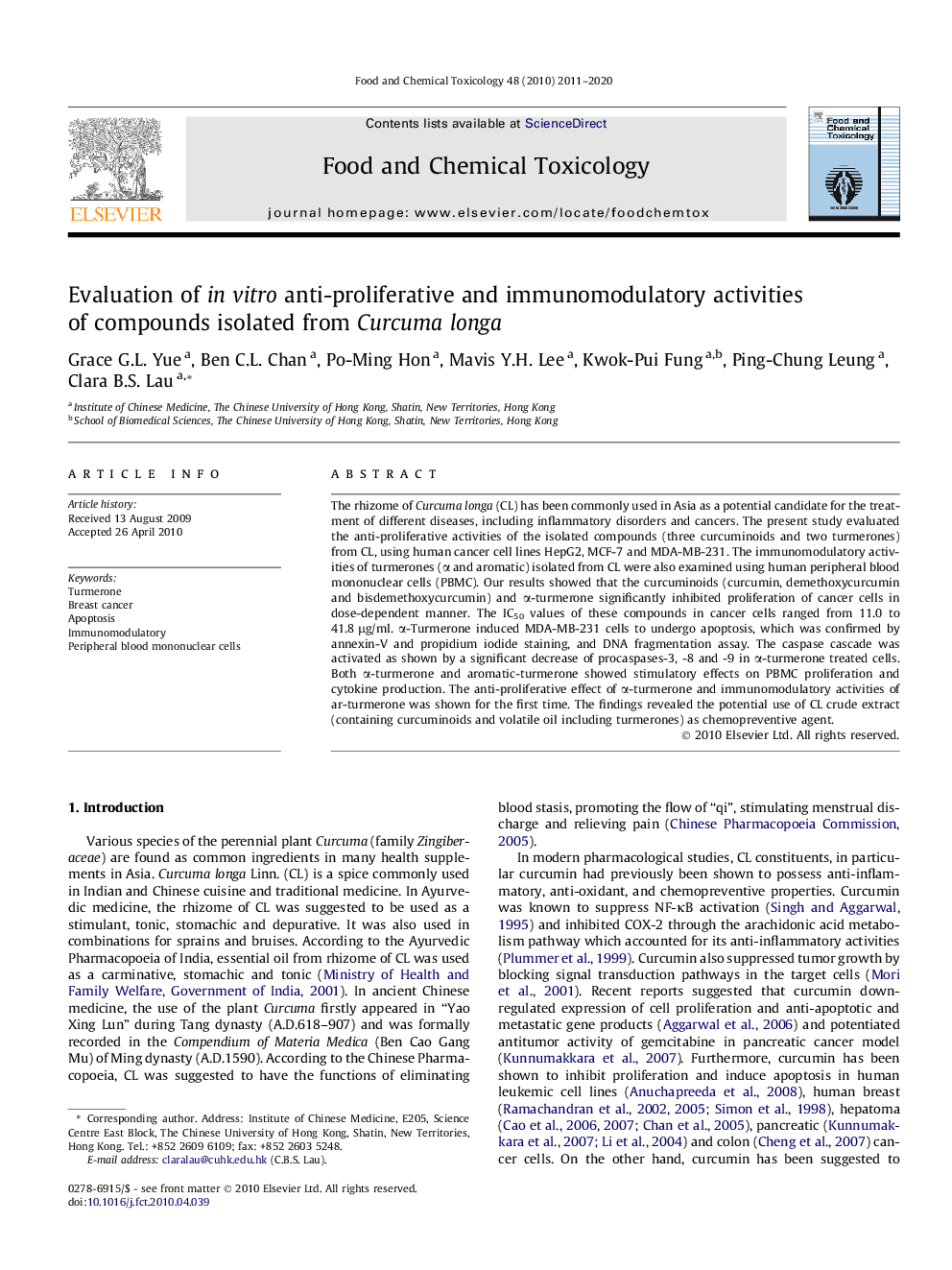| Article ID | Journal | Published Year | Pages | File Type |
|---|---|---|---|---|
| 2585646 | Food and Chemical Toxicology | 2011 | 10 Pages |
The rhizome of Curcuma longa (CL) has been commonly used in Asia as a potential candidate for the treatment of different diseases, including inflammatory disorders and cancers. The present study evaluated the anti-proliferative activities of the isolated compounds (three curcuminoids and two turmerones) from CL, using human cancer cell lines HepG2, MCF-7 and MDA-MB-231. The immunomodulatory activities of turmerones (α and aromatic) isolated from CL were also examined using human peripheral blood mononuclear cells (PBMC). Our results showed that the curcuminoids (curcumin, demethoxycurcumin and bisdemethoxycurcumin) and α-turmerone significantly inhibited proliferation of cancer cells in dose-dependent manner. The IC50 values of these compounds in cancer cells ranged from 11.0 to 41.8 μg/ml. α-Turmerone induced MDA-MB-231 cells to undergo apoptosis, which was confirmed by annexin-V and propidium iodide staining, and DNA fragmentation assay. The caspase cascade was activated as shown by a significant decrease of procaspases-3, -8 and -9 in α-turmerone treated cells. Both α-turmerone and aromatic-turmerone showed stimulatory effects on PBMC proliferation and cytokine production. The anti-proliferative effect of α-turmerone and immunomodulatory activities of ar-turmerone was shown for the first time. The findings revealed the potential use of CL crude extract (containing curcuminoids and volatile oil including turmerones) as chemopreventive agent.
